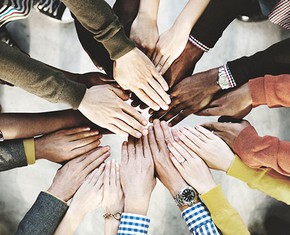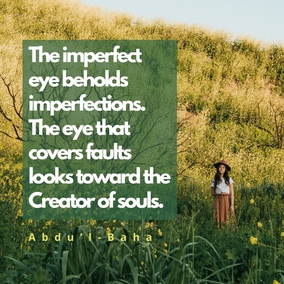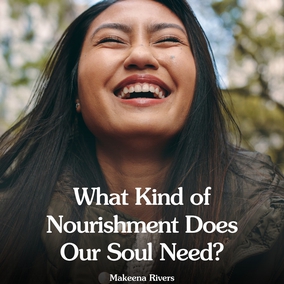The views expressed in our content reflect individual perspectives and do not represent the authoritative views of the Baha'i Faith.
I lost my first love to tragedy, in a way that felt uniquely traumatic. When I was trying to process his death, I found myself deeply entrenched in my grief. And after I experienced other, more seemingly ordinary heartbreaks, I began to wonder about the relationship between heartbreak and mental health. Why was it so difficult to bounce back from those experiences?
Research shows that when a person is experiencing heartbreak an fMRI scan might look similar to that of a person with opioid addiction in withdrawal. Studies also indicate that the phrase “heartbreak” is actually somewhat intuitive: When we feel heartbroken, our brain can light up in an fMRI scan as if we are experiencing prolonged physical pain. Intrusive thoughts, usually memories, about the person or thing we agonize over keep these parts of the brain activated, making it hard for us to overcome the pain.
Grief often feels like it will last forever. When we can’t grasp the reality that time is on our side, that “this too shall pass,” we feel like giving up on healing. I read an article about a woman who was plunged into anxiety after a breakup overlapped with other challenges in her life. She grasped the concept that things would improve with time, but she felt that she was really just re-looping into the same pain again and again. “I imagined my pain would fade with time,” she said. “Friends and family, podcasts, books on heartbreak, and my therapist all echoed this sentiment. But I felt like I needed more than time. I needed help.”
Sometimes, we need more. As evidenced by the increasing popularity of meditation, mindfulness, and service to others as tools for healing, it feels clear that spirituality is deeply beneficial to improving mental health. I began to seek deeper meaning: What spiritual truths help when healing from heartbreak and the repercussions it has on mental wellness?
One concept I find helpful is “crisis and victory.” Baha’u’llah, the prophet and founder of the Baha’i Faith, lived a long life suffering exile, imprisonment, poverty, betrayal, and the death of his loved ones. The governing body of the global Baha’i community, The Universal House of Justice, points to his life and that of other central figures of the Baha’i Faith to explain the cycle of crisis and victory, writing that: “[Life] brings each one of us crises as well as victories. Our own lives, and even the lives of the central figures of the Faith, have been fraught with agony as well as blessing, with failure and frustration and grief, as frequently as with progress. This is the nature of life.”
Perseverance through these crises can be difficult. We may have to drag ourselves through life for a while when we deal with mental health issues complicated by heartbreak. Sometimes, when a person really struggles to bounce back from a change, mental health professionals diagnose them with an “adjustment disorder.” This label describes a set of symptoms that can be treated like any other disorder and can help the person overcome the feeling that overwhelming pain is permanent. Instead, it can become an opportunity to grow through therapy, spiritual healing, and personal effort. Through addressing our mental health we often transform our spiritual selves.
The writings of many faiths agree that with the right effort, there is certainly hope, no matter how painful and chaotic things may seem at any given moment. As Abdu’l-Baha, the son of Baha’u’llah wrote:
“When the winds blow severely, rains fall fiercely, the lightning flashes, the thunder roars, the bolt descends and storms of trial become severe, grieve not; for after this storm, verily, the divine spring will arrive, the hills and fields will become verdant, the expanses of grain will joyfully wave, the earth will become covered with blossoms, the trees will be clothed with green garments and adorned with blossoms and fruits. Thus blessings become manifest in all countries. These favors are results of those storms and hurricanes.”
Thinking about growth as the result of hardship makes it easier for me to be gentle with myself if I notice that I’m struggling through the healing process. It also makes me gentler with others when I see them struggle. While heartbreak can feel overwhelming or even unearthing, there is a light at the end of any tunnel when we use the right tools to move forward.
















Comments
Sign in or create an account
Continue with Googleor